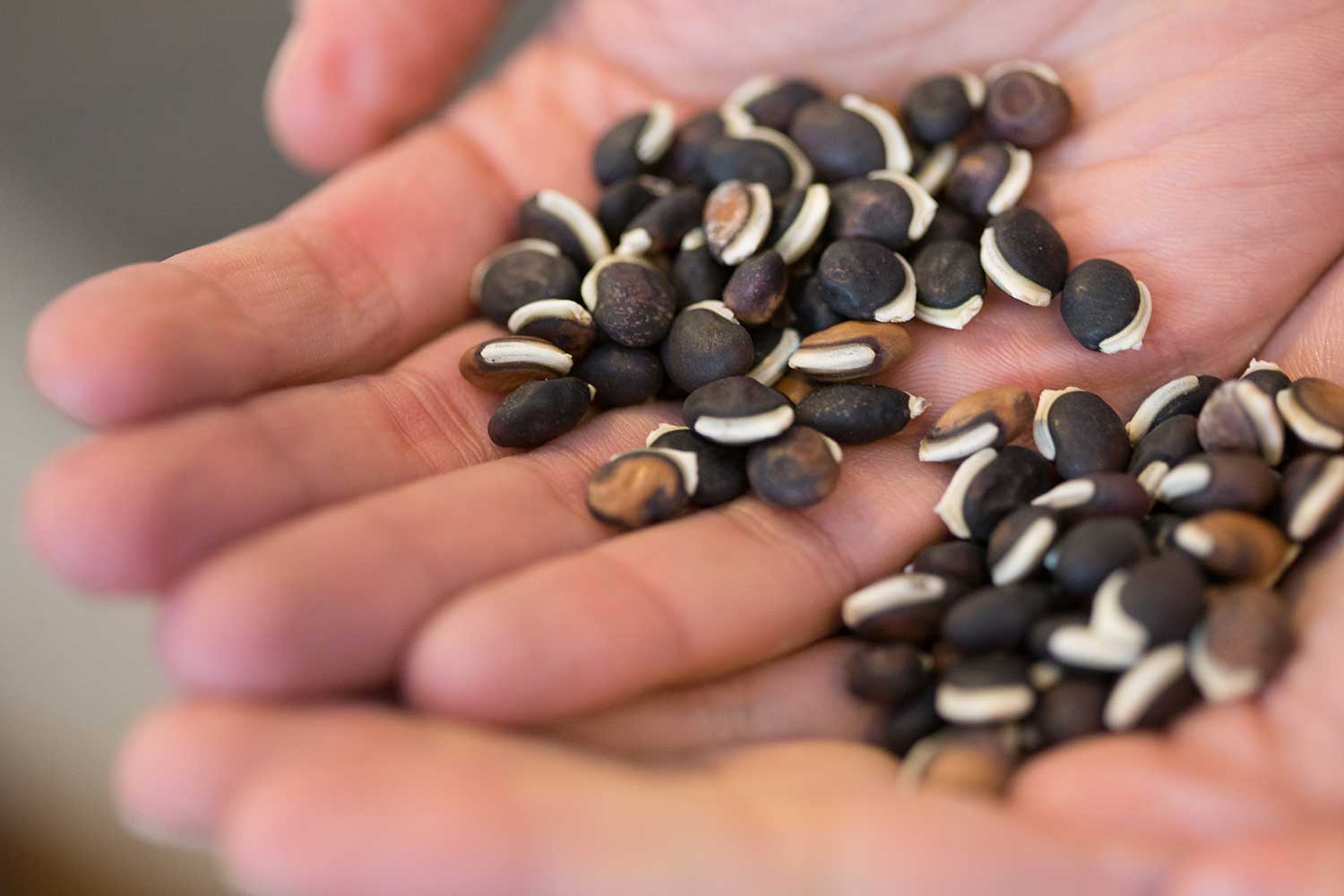Who we are
We are a global community of farmers, scientists, chefs, creative individuals and consumers who believe in the power of Shumei Natural Agriculture. Shumei Natural Agriculture is based on the philosophy and writings of Mokichi Okada that foster reverence and understanding of our natural world by promoting ecologically friendly and sustainable farming practices. Our agricultural practice results in better health and happiness by working in harmony with nature.
Since Natural Agriculture was developed by the Japanese naturalist and philosopher Mokichi Okada in the 1930s in Japan, the community has grown as a worldwide movement, and it has prominent impacts on the local communities in every continent. We welcome every single person on earth to participate in the cycle of Shumei Natural Agriculture to work together to build better communities, relationships and global awareness based upon harmony and respect. Please join us.

What we believe
“Nature teaches us everything.” —Mokichi Okada. “A Great Agricultural Revolution.”
Shumei Natural Agriculture is more than a system of food production, it is a way of life. We see the natural world as an organic, living and spiritual being where the elements of nature work best in harmony when they are left in their pure and natural state. Our role as a global community is to learn how the natural world works and adapt our lifestyle to fit with it.

How we do it
Many modern agricultural practices are based on a belief in the need to control and manipulate the growing process. Nature is viewed as a mechanical thing in which it is possible to replace one gene with a manufactured genetically modified organism without any effect upon the natural world order and balance. Instead, Shumei Natural Agriculture does not use any chemicals whatsoever in its farming methodology—no herbicides, no pesticides, and no fertilizers—not even animal manure. We simply trust the power of nature that can grow healthy and tasty crops that are full of vital energy.
Seed Saving
Continuous seed saving from the same location are one of the key principles of Natural Agriculture. Seeds saved from Natural Agriculture crops are the best seeds to use for the following year. For the first year, if you can not get those seeds from another Natural Agriculture farm, you can use local organic variety seeds or heirloom (open-pollinated) organic seeds. Never use genetically modified (GM) seeds as they have had their DNA manipulated through genetic engineering.
FAQs
What does it mean that Natural Agriculture is a way of life?
A core principle of Natural Agriculture is an overriding respect for nature. This means honoring the cycle of life and the integrity of the Earth’s ecosystems; developing a sense of gratitude for nature’s sustenance; and recognizing the interconnectedness of all living things. By making decisions based on this understanding and respect for nature, our lives become more in tune with how nature works. This applies to the production and consumption of local and seasonal food, as well as all aspects of life. In this way, Natural Agriculture is a way of living in harmony with nature for both farmers and consumers.
Is kitchen waste ever used in Natural Agriculture?
Recycling is an important part of a sustainable lifestyle. However, the practice of Natural Agriculture avoids reusing kitchen waste from conventional crops or processed foods as compost, because the chemical remnants from the food can contaminate the soil. Natural Agriculture food waste can be used as compost. However, any compost, cover crop or mulch, such as leaves from the surrounding area, applied to the soil is meant only to keep it soft, temperate and moist, and not as an additive or fertilizer.
How does Natural Agriculture deal with pests without the use of pesticides?
Insects are not considered’pests’ in the natural world, nor are weeds. The excessive appearance of insects that damage plants indicates an imbalance in nature. Given the overriding respect for nature in Natural Agriculture, farmers will have a different approach. Rather than trying to control insects with harmful chemical pesticides or even natural ingredients, Natural Agriculture promotes a more comprehensive understanding of the role of insects and how to maintain their balance in the ecosystem. For instance, farmers on small plots of land can remove insects from plants or weed their fields by hand so they do not become excessive and damage plant life. Farmers can also harvest crops prone to infestation slightly earlier or grow them in greater quantities to allow for losses.
What other farming techniques/approaches are unique to Natural Agriculture?
In Natural Agriculture, a farmer’s relationship to and respect for the natural world impacts all aspects of cultivation. For instance, Natural Agriculture farmers:
- Consider the plants and the soil to be living entities rather than commodities.
- Experiment to see which crops work well for the soil rather than cultivating crops that are unsuitable for the land for their needs.
- Respect the integrity and purity of seeds by using only heirloom, indigenous or Natural Agriculture seeds collected at each harvest.
- Encourage continuous cropping instead of crop rotation, as each generation of seed improves and adapts to the particular soil and environment, and the soil also adapts to particular crops.
What are the advantages of Natural Agriculture?
As a means of cultivation, Natural Agriculture:
- Provides an environmentally sustainable approach to food production;
- Does not require any additives, chemicals, fertilizers or purchased seeds;
- Eliminates the risk of pollution of the soil, ground water, rivers and oceans from run off as well as the contamination of crops from chemicals, fertilizers and manure;
- Promotes biodiversity and healthy soil, reduces soil erosion and can improve the soil’s potential for carbon sequestration thus reducing greenhouse gas emissions;
- Produces tasty, healthy crops from pure heirloom or indigenous seeds that are more resilient and adaptable to changing climates;
- Promotes seed collection, which produces higher quality seeds and reduces costs;
- Supports small local farm holders, farmerconsumer relationships and lower energy consumption.
As a way of life in harmony with nature, Natural Agriculture:
- Builds the foundation for a sustainable lifestyle by developing a deep respect for nature and helps restore the relationship between humankind and the environment;
- Fosters an attitude of trust, gratitude and care which carries forth into relationships between farmers and consumers;
- Teaches consumers to appreciate nature’s sustenance and the importance of food safety and food security;
- Encourages consumers to buy, cook and eat local and seasonal foods thereby honoring local cuisine and traditions that respect nature’s cycle;
- Encourages individuals to reconnect with nature in their own way and to see the beauty in their environment and surroundings;
- Honors the wisdom of traditional farming culture and the value of food;
- Addresses the economic, social, health and environmental costs of food production;
- Helps individuals understand the natural laws and principles of the universe.
Can Natural Agriculture work everywhere?
Natural Agriculture can be practiced wherever there is arable land. Depending on the environment, it may take additional time for certain crops to adapt. Nevertheless, soil and crops will naturally adapt even in unfavorable climate conditions. One of the most important principles in Natural Agriculture is to learn and observe the natural environment.


